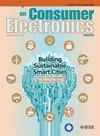Quantum-Resistant Security Framework for Secure and Scalable IoT-Enabled Metaverse Environments
IF 10.9
2区 计算机科学
Q1 ENGINEERING, ELECTRICAL & ELECTRONIC
引用次数: 0
Abstract
In an era where securing Internet of Things (IoT) devices within Metaverse environments is increasingly critical, existing frameworks often lack robust, quantum-resistant protection suitable for resource-constrained devices. This study aims to develop a comprehensive quantum-resistant security framework designed for IoT-enabled Metaverse applications. Our multilayered architecture incorporates Ideal Coset Lattice Cryptography (ICLC) and a Hypercomplex Multivariate Encryption Scheme (HMES) across the Device, Network, and Metaverse layers. ICLC provides lightweight, quantum-resistant encryption for devices with limited computational resources, while HMES enhances security through complex algebraic structures resistant to quantum attacks. We implement a Zero-Knowledge Proof Authentication mechanism over Hypercomplex Algebras (ZKPHA) to authenticate devices without exposing private keys. An edge computing strategy that employs convex optimization minimizes latency and computational load, ensuring scalability and efficiency. Simulations over a 260-minute period compared our framework with six state-of-the-art methods under various conditions. The results show that our framework reduces the rate of successful cyberattacks on encrypted data to 0.15%, achieves encryption and decryption times of 2.2 milliseconds per operation, and maintains 98.5% system availability during attacks.用于安全和可扩展的物联网支持的元环境的抗量子安全框架
在一个确保物联网(IoT)设备在元宇宙环境中的安全变得越来越重要的时代,现有框架往往缺乏适合资源受限设备的强大、抗量子保护。本研究旨在为支持物联网的元宇宙应用开发一个全面的抗量子安全框架。我们的多层架构结合了理想协集点阵加密(ICLC)和跨设备层、网络层和元宇宙层的超复杂多元加密方案(HMES)。ICLC为计算资源有限的设备提供轻量级、抗量子加密,而HMES通过抵抗量子攻击的复杂代数结构增强安全性。我们在超复杂代数(ZKPHA)上实现了零知识证明认证机制,在不暴露私钥的情况下对设备进行认证。采用凸优化的边缘计算策略可最大限度地减少延迟和计算负载,确保可伸缩性和效率。在260分钟的模拟时间内,将我们的框架与六种最先进的方法在不同条件下进行了比较。结果表明,我们的框架将加密数据的网络攻击成功率降低到0.15%,每个操作的加解密时间为2.2毫秒,并且在攻击期间保持98.5%的系统可用性。
本文章由计算机程序翻译,如有差异,请以英文原文为准。
求助全文
约1分钟内获得全文
求助全文
来源期刊
CiteScore
7.70
自引率
9.30%
发文量
59
审稿时长
3.3 months
期刊介绍:
The main focus for the IEEE Transactions on Consumer Electronics is the engineering and research aspects of the theory, design, construction, manufacture or end use of mass market electronics, systems, software and services for consumers.

 求助内容:
求助内容: 应助结果提醒方式:
应助结果提醒方式:


